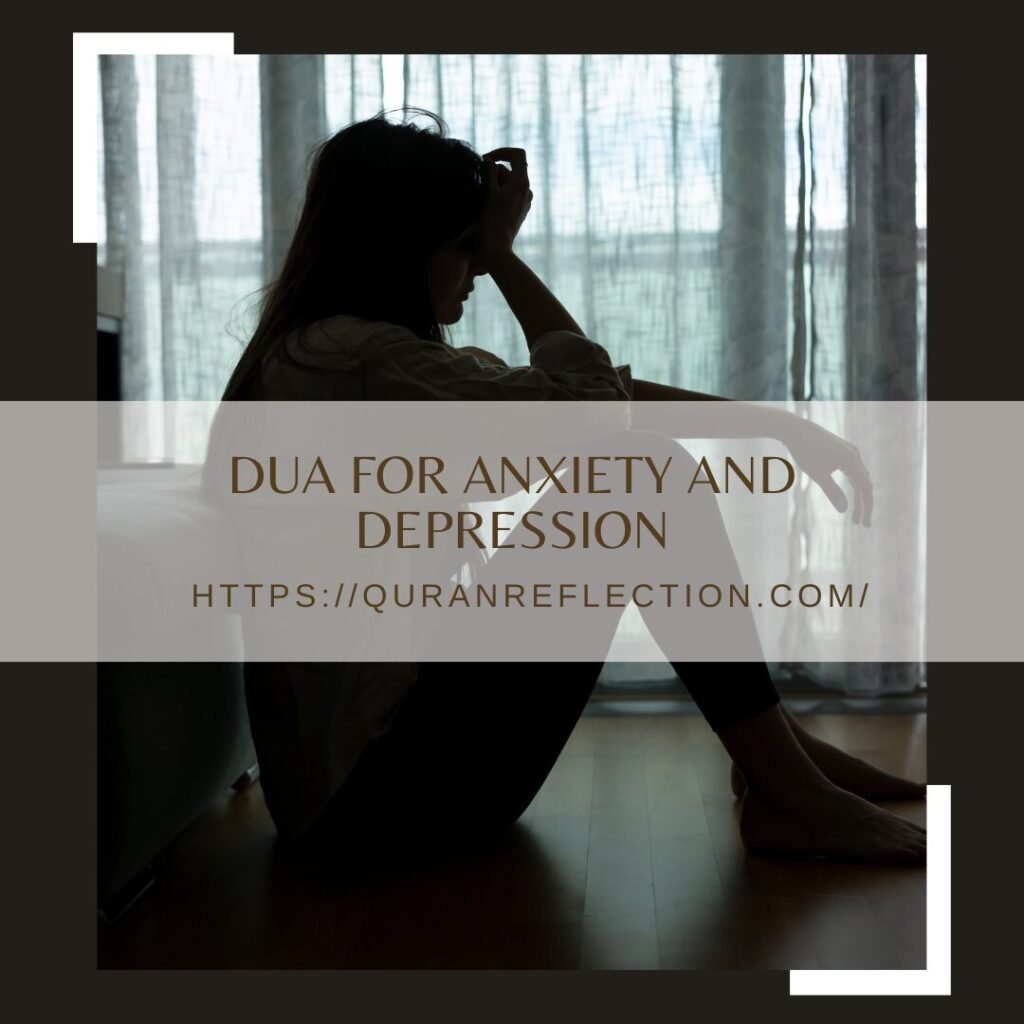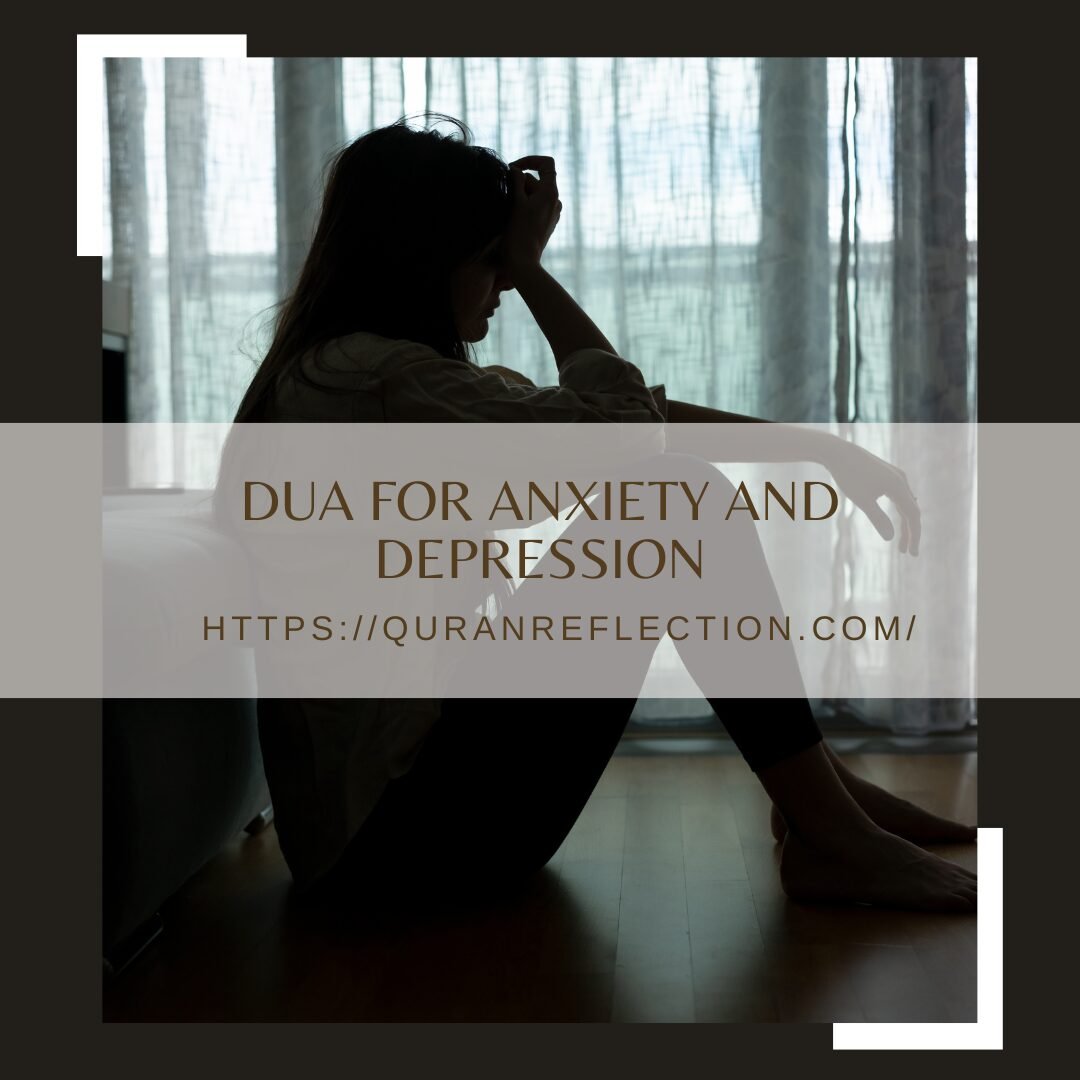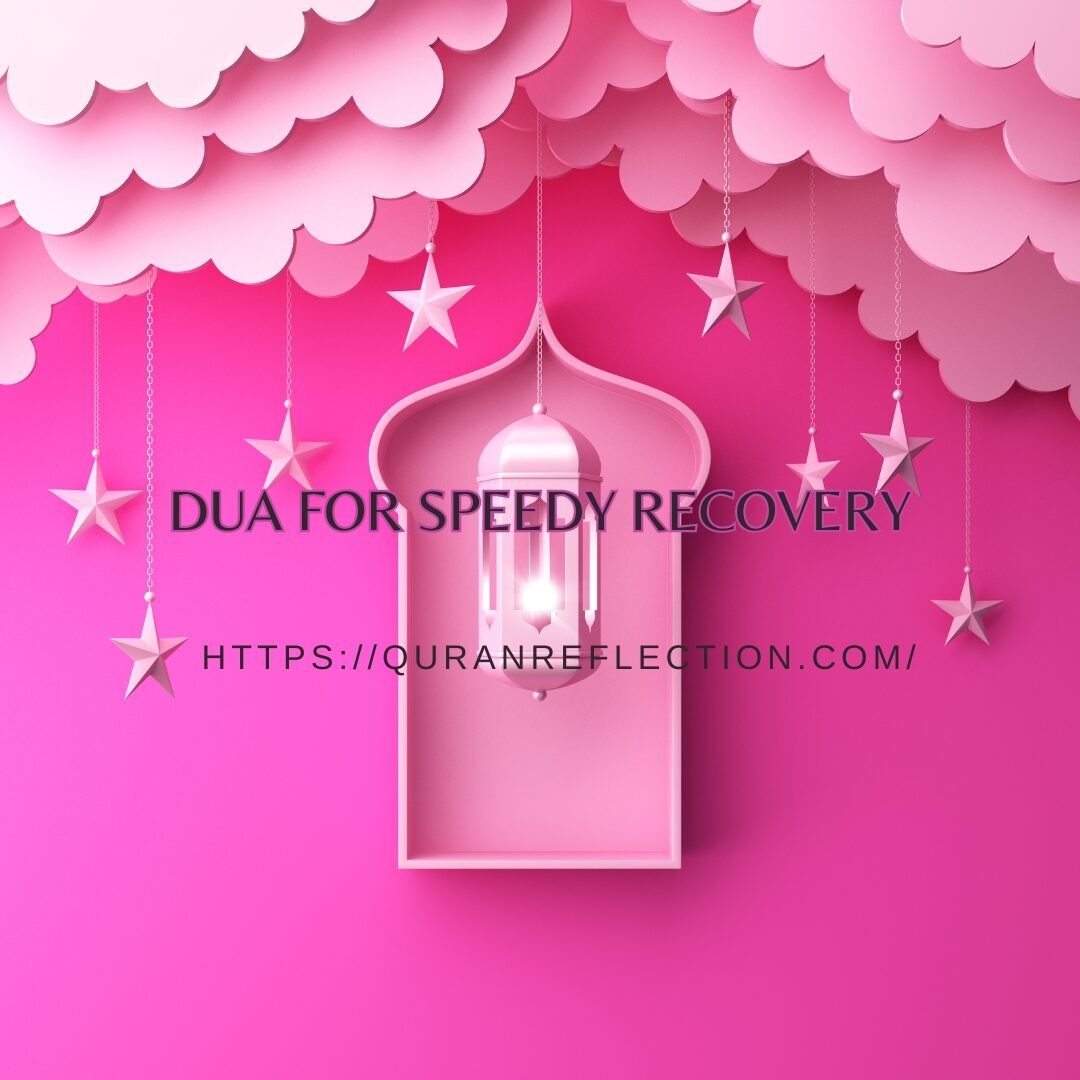Dua for Anxiety and Depression
Introduction:
Anxiety and depression are pervasive issues that affect millions of people worldwide. These mental health conditions can stem from various factors, including personal experiences, genetic predisposition, environmental stressors, and chemical imbalances in the brain. While modern medicine offers numerous treatments, including therapy and medication, many individuals seek solace and healing through spiritual practices. In Islam, dua (supplication) is a powerful tool for seeking Allah’s help and mercy. This article explores the concept of dua, its significance, and specific supplications recommended for alleviating anxiety and depression.

Understanding Anxiety and Depression:
What is Anxiety?
Anxiety is a natural response to stress and danger, but when it becomes chronic, it can significantly impact one’s quality of life. It manifests through excessive worry, fear, and nervousness, often accompanied by physical symptoms such as increased heart rate, sweating, trembling, and fatigue. Anxiety disorders include generalized anxiety disorder (GAD), panic disorder, social anxiety disorder, and specific phobias.
What is Depression?
Depression is a mood disorder characterized by persistent feelings of sadness, hopelessness, and a lack of interest or pleasure in activities. It affects one’s thoughts, feelings, behavior, and overall physical health. Symptoms of depression can include changes in appetite and sleep patterns, fatigue, difficulty concentrating, and suicidal thoughts. Depression can range from mild to severe and requires professional intervention.
The Role of Faith and Spirituality:
Faith and spirituality play a crucial role in mental health, providing comfort, hope, and a sense of purpose. In Islam, believers turn to Allah for guidance and support through prayers and supplications. The Quran and Hadith contain numerous verses and sayings of the Prophet Muhammad (peace be upon him) that offer comfort and healing for those experiencing anxiety and depression.
The Significance of Dua in Islam:
What is Dua?
Dua is a personal invocation, a way for Muslims to communicate directly with Allah. It is an act of worship that reflects humility, dependence, and trust in God’s power and mercy. Dua can be made in any language, at any time, and in any place. It encompasses requests for guidance, forgiveness, help in times of distress, and blessings for oneself and others.
The Power of Dua:
The Quran and Hadith emphasize the importance and power of dua. Allah encourages believers to call upon Him with sincerity and assures them of His response. In Surah Al-Baqarah (2:186), Allah says, “And when My servants ask you concerning Me, indeed I am near. I respond to the invocation of the supplicant when he calls upon Me.” This verse highlights the accessibility and responsiveness of Allah to the prayers of His servants.
Dua as a Source of Comfort:
Dua provides emotional and spiritual relief, helping individuals feel connected to a higher power and reassured of divine support. It fosters a sense of hope and resilience, enabling believers to cope with life’s challenges. Through dua, Muslims express their innermost thoughts and emotions, seeking solace and guidance from Allah.
Specific Duas for Anxiety and Depression:
Islamic teachings offer specific supplications for those experiencing anxiety and depression. These duas, derived from the Quran and Hadith, provide comfort and strength, reminding believers of Allah’s mercy and omnipotence.
Dua from Surah Al-Baqarah (2:286):
The last verse of Surah Al-Baqarah is a powerful supplication for seeking Allah’s help in times of distress:
“Our Lord, do not impose blame upon us if we forget or make a mistake. Our Lord, and lay not upon us a burden like that which You laid upon those before us. Our Lord, and burden us not with that which we have no ability to bear. And pardon us; and forgive us; and have mercy upon us. You are our protector, so give us victory over the disbelieving people.”
Dua from Surah Al-Anbiya (21:87)
This dua, recited by Prophet Yunus (Jonah) when he was in the belly of the whale, is a powerful plea for relief from distress:
“There is no deity except You; exalted are You. Indeed, I have been of the wrongdoers.”
Dua from Surah At-Tawbah (9:129)
This verse reminds believers to place their trust in Allah:
“Sufficient for me is Allah; there is no deity except Him. On Him I have relied, and He is the Lord of the Great Throne.”
Dua from Surah Al-Inshirah (94:5-6)
These verses remind us that with hardship comes ease:
“For indeed, with hardship [will be] ease. Indeed, with hardship [will be] ease.”
Dua from the Hadith:
The Prophet Muhammad (peace be upon him) taught specific duas for alleviating anxiety and depression:
“O Allah, I seek refuge in You from anxiety and sorrow, weakness and laziness, miserliness and cowardice, the burden of debts, and from being overpowered by men.”
“O Allah, I hope for Your mercy. Do not leave me to myself even for the blinking of an eye. Correct all of my affairs for me. There is no god but You.”
Incorporating Dua into Daily Life:
Establishing a Routine:
To effectively benefit from dua, it is essential to incorporate it into daily life. Establishing a routine helps create a habit of turning to Allah regularly. Set aside specific times for dua, such as after the obligatory prayers, before sleeping, or during moments of quiet reflection.
Creating a Peaceful Environment:
Find a quiet and peaceful environment where you can focus on your supplications without distractions. This could be a dedicated prayer space at home, a mosque, or any place where you feel calm and connected to Allah.
Combining Dua with Other Acts of Worship:
Combining dua with other acts of worship, such as reading the Quran, making dhikr (remembrance of Allah), and performing salah (prayer), enhances the spiritual experience and strengthens the connection with Allah. Engage in regular acts of charity and kindness, as these also bring blessings and inner peace.
Practicing Patience and Trust:
While making dua, it is important to practice patience and trust in Allah’s wisdom and timing. Understand that Allah knows what is best for you and may answer your prayers in ways you do not expect. Maintain a positive mindset and believe that Allah’s response will come at the right time.
The Role of Community Support:
Seeking Support from Family and Friends:
In times of anxiety and depression, seeking support from family and friends can provide comfort and reassurance. Share your feelings with trusted loved ones who can offer emotional support and remind you of the power of dua and faith.
Joining Support Groups:
Joining support groups, either within the local Muslim community or online, can help you connect with others facing similar challenges. These groups provide a platform for sharing experiences, offering advice, and making collective duas for each other’s well-being.
Consulting Religious Scholars:
Consulting religious scholars or imams can provide additional guidance and support. They can offer personalized advice, recommend specific duas, and provide spiritual counseling to help you navigate through difficult times.
Integrating Professional Help:
Combining Faith and Therapy:
While dua is a powerful tool for spiritual healing, it is important to acknowledge the benefits of professional therapy and counseling. Combining faith and therapy can provide a holistic approach to managing anxiety and depression. Seek therapists who respect and understand your religious beliefs and can incorporate them into the treatment plan.
Medication and Medical Support:
In some cases, medication may be necessary to manage anxiety and depression effectively. Consult with healthcare professionals to determine the best course of treatment. Remember that taking medication is not a sign of weakness or lack of faith; it is a means of taking care of your mental health.
Conclusion:
Dua is a profound and powerful means of seeking Allah’s help and mercy, especially in times of anxiety and depression. The Quran and Hadith provide numerous supplications that offer comfort, strength, and hope. By incorporating dua into daily life, creating a peaceful environment, practicing patience and trust, seeking community support, and integrating professional help, believers can find solace and healing through their faith.
Frequently Asked Questions (FAQs)
What is the best time to make dua for anxiety and depression?
The best time to make dua is during moments of tranquility and focus. Specific times recommended for making dua include after the obligatory prayers, during the last third of the night, on Fridays, and during the month of Ramadan. Additionally, moments of personal distress or reflection are also suitable times for making dua.
Can dua alone cure anxiety and depression?
Dua is a powerful spiritual tool that provides comfort and hope, but it should be combined with other forms of treatment for a holistic approach. Professional therapy, medication, and lifestyle changes are also important components of managing anxiety and depression effectively.
How do I know if my dua is being accepted?
Allah assures believers that He responds to their supplications. However, the response may not always be immediate or in the form expected. Trust in Allah’s wisdom and timing, and maintain patience and faith. Signs of acceptance can include a sense of peace, relief from distress, and positive changes in circumstances.
Can I make dua in my own language?
Yes, you can make dua in any language that you are comfortable with. While specific duas from the Quran and Hadith are in Arabic, personal supplications can be made in your native language to ensure sincerity and emotional connection.
What should I do if I feel my dua is not being answered?
If you feel your dua is not being answered, continue to make supplications with patience and trust in Allah. Reflect on your intentions, ensure sincerity, and seek forgiveness for any shortcomings. Sometimes, Allah’s response may be delayed or different from what you expect, but it is always for your ultimate benefit.
Are there any specific actions that can enhance the effectiveness of dua?
Engaging in
acts of worship, such as regular prayer, reading the Quran, making dhikr, and performing acts of charity, can enhance the effectiveness of dua. Maintaining a positive mindset, practicing gratitude, and seeking forgiveness also contribute to a spiritually enriched life that supports the acceptance of supplications.
In conclusion, dua is an essential aspect of Islamic practice that offers profound comfort and support during times of anxiety and depression. By incorporating specific supplications, maintaining a routine, seeking community support, and integrating professional help, individuals can find a holistic path to mental and spiritual well-being. Trust in Allah’s mercy and wisdom, and remember that He is always near, ready to respond to the sincere calls of His servants.










